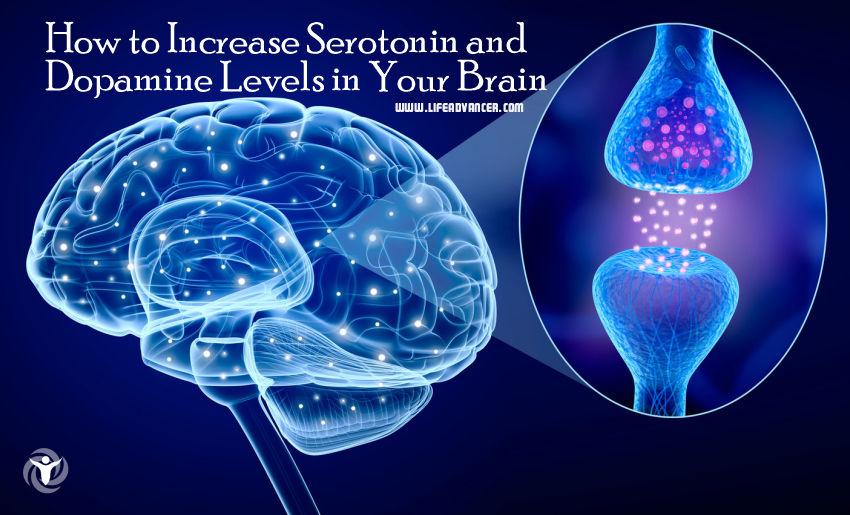
If you suffer from depression or are just feeling down, here are ways to increase serotonin and dopamine in your brain to make yourself happy again.
Often when people are feeling down, they will try to raise their spirits the most convenient way they know how. Sometimes this includes binge-watching TV and eating copious amounts of junk food, and other times it includes mind-altering substances such as alcohol or drugs. No doubt, these methods are temporarily effective, but they usually leave you feeling even worse than you did before.
These methods are used so commonly because they are easy, they don’t require any concentration or effort from you.
What would you do if I told you there are ways to raise your spirits for much longer periods of time, maybe indefinitely? These ways do require a little more effort and concentration, however, their benefits far supersede a six-pack of beer.
Chemicals including endorphins, oxytocin, serotonin and dopamine naturally occur in our brains and make us happy. However, sometimes we need to recharge the supply! If you’re ready to put down the remote and become a happier person, read on.
Physical exercise is one of the fastest ways to feel happier and relieve stress. If working out at the gym isn’t your thing, that’s okay, there are so many other options. From organized team sports to skateboarding or rock climbing, you’re sure to find something you enjoy.
When you move your body, the flow of oxygen to your brain increases which helps you to think. Artists often claim that going for a walk can help you to brainstorm or come up with creative ideas.
When you focus on a project, whether it be a painting or writing a song, you give your mind a break from stressful thoughts and enter an almost meditative state.
The next step up from here would be to try out traditional, yet simple meditation. Meditation and mindfulness practices involve quieting the mind and the ego, which is often responsible for suffering and negativity.
These practices take a lot of focus at first but can eventually change your outlook on life and overall happiness.
No matter what kind of music you’re into, when you listen to songs that you love, you feel happier. Lately, scientists have been proving that music can even have positive effects on your body and physical health too!
The gut may seem like a faraway part of the body that should have nothing to do with mental health, however, scientists have proven the exact opposite to be true.
If you often eat junk foods that upset your stomach, you are actually upsetting your mind as well. On the other hand, healthy foods can reverse damage and improve your gut, therefore improving your mental health.
Yogurt is a great example as it contains probiotics, which are good bacterias that directly affect the chemicals in your brain. Detoxing your body will greatly improve both your gut and mental health as well.
Abstaining from alcohol and or drugs, for the most part, is a great way to detox, however, if you need a drink every once in a while, that’s okay! Opt for red wine as it is actually loaded with antioxidants.
Pick one major thing to focus on, such as eating healthier, first. While working towards this goal spend some time on the side listening to music or playing around with a low-pressure art project.
As you slowly transition to raising your brain’s happy hormones, such as serotonin and dopamine, in a healthier way, you are sure to find yourself as a much happier person.
References:
This website uses cookies.
View Comments
Wonderful, I do agree.
Thanks that's so nice
smoke weed
I agree .. ought to be tried .. and eat lots of bananas too :D
Check your vitamin and mineral levels. Low vitamin d can cause SERIOUS depression and anxiety. I know because my current vitamin d level is at 34!!!!
I'm a 28
Praying for you baby... God bless you!